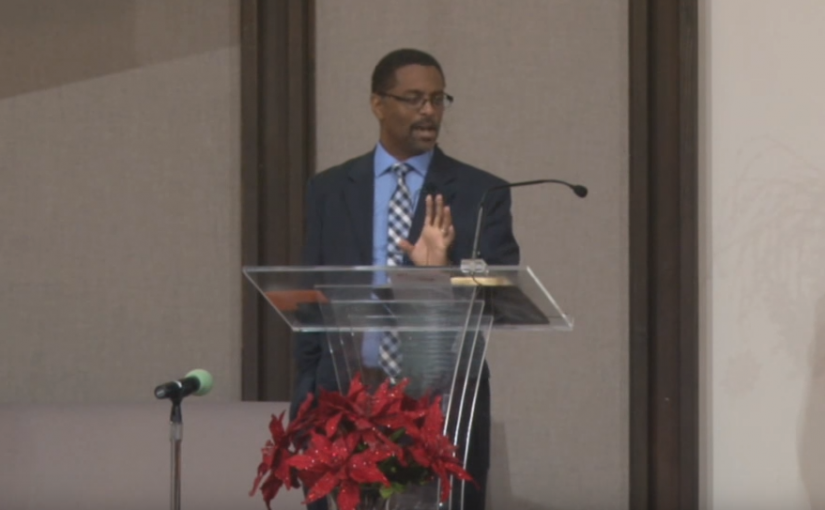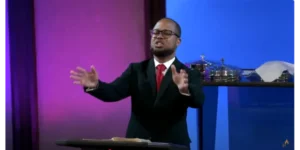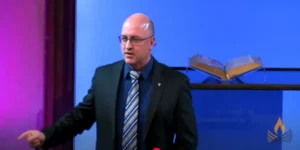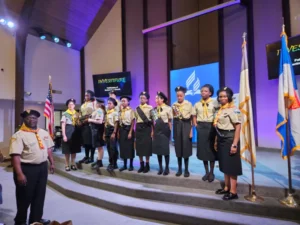Have you responded to Christ’s invitation?
Rewind to Luke 14:15-24. While a dinner guest at a Pharisee’s home, Jesus told a parable of the Great Banquet to teach that those who will enjoy the feast of God tomorrow must accept His invitation today. He also wanted to show those who thought they held favored status that they were in danger of rejecting that invitation.
In the parable, the host represents God Himself. The feast was His idea, according to his wealth and generosity. Grace is God’s idea, not ours, and we have no say in who God gives it to.
The feast is “Every spiritual blessing in Christ” (Eph. 1:3). The main courses are adoption, redemption, forgiveness, grace, inheritance, and sealing by the Holy Spirit. “In the feast He had provided, God offered to them the greatest gift that heaven can bestow—a gift that is beyond computation. The love of God had furnished the costly banquet and had provided inexhaustible resources” (Christ’s Object Lessons, pp. 222-223).
Readiness, anticipation, and abundance are the characteristics of the gospel presented in this parable. Everything God had prepared from the foundation of the world was ready. There was nothing for humans to do but come, and there was grace enough in God’s heart to include the whole world. If we are not partaking of the blessings of God now, it is because we aren’t sitting down to the table.
The Jews were not sitting down. In the parable, the first invitees made excuses for not coming to the feast. Possessions (Luke 14:18), worldly care (vs. 19), and misplaced priorities (vs. 20) came between them and the host.
Note how these three excuses mirror the societal preoccupations of the last days highlighted by Jesus just a little later in Luke 17:26-29.
- “Buying and selling” (17:28) parallels “I have just bought a field, and I must go see it.” (14:18).
- “Planting and building” (17:28) parallels “Five yoke of Oxen, and I’m on my way to try them out.” (14:19)
- “Marrying and being given in marriage” (17:27) parallels “I just got married, so I can’t come.” (14:20)
And pay attention to who is doing the rejecting. Not the heathen, but the chosen. This is directed to church people. The Jews were invited first. After they refused, the gospel went to the Gentiles—those who were “poor in spirit,” had no hope, and were lost in trespasses and sins. But the Gentiles they were hungry. Those who are hungry appreciate a feast. Those who are satisfied, don’t. “He has filled the hungry with good things but has sent the rich away empty” (Luke 1:53). “Blessed are those who hunger and thirst for righteousness, for they will be filled” (Mt. 5:6).
Grace hates a vacuum, so the host (God) sent His servants into the highways and hedges, the country roads and back alleys to find willing people to come fill his house. The lessons Jesus wanted to teach are these:
- The feast is only for those who can appreciate the menu. Jesus said “I am the living bread which came down from heaven” (Jn. 6:48-51). Jesus Himself is the provision—His life, His teachings—and there are no substitutes. “The heart that is absorbed in earthly affections cannot be given up to God.” (COL, 223) For many, Jesus is not enough. They are always trying to “spice” Him up, or add “sides” to the menu. Jesus is more than enough to satisfy the longings of the soul.
- The abundance of provision does not guarantee acceptance.
If you accept the provision, which is ample enough for every human being on the globe, you are blessed, but if you neglect or refuse it, that provision, if multiplied a thousand times, would be of no more benefit to you than light to the blind, sound to the deaf, or food to the dead. It is a provision that is invalid if you fail to accept it.
- We are not to wait for souls to come to us; we must seek them out where they are. There are millions who will never be reached by the gospel unless it is carried to them. The invitation we must accept isn’t just for our own place at the table, it is also to let others know there is a place for them at the Lord’s table.
- Only self-excluders will be refused a place at the feast of salvation. If we’re not there, it will be because we chose to be elsewhere. Our place has already been reserved. There’s a table tent with our name on it. All we have to do is come.
Though it’s barely conceivable, we will be the guests of honor at the great feast of heaven. There will be a great multitude that no one can count from every nation, tribe, people and language, standing before the throne and in front of the Lamb (Rev. 7:14-17). And God Himself will speak our names.
You are Invited! It’ll be easy to think our invitation is an accident or a mistake. But your name has always been on God’s VIP list. The only question that remains is, have you accepted the invitation? “The Spirit and the bride say, ‘Come!’ And let him who hears say, ‘Come!’ Whoever is thirsty, let him come; and whoever wishes, let him take the free gift of the water of life” (Rev. 22:17).
Come, for all things are NOW ready! Today, if you hear His voice, don’t harden your heart. You are invited. –Pastor Randy





